Salivary gland cancer is among very rare cancers in which malignant (cancer) cells or tumors are formed and placed in the tissues of the salivary glands.
Different risk factors like being exposed to certain types of radiation will increase the possibility of salivary cancer.
Various signs of salivary gland cancer are a lump or trouble swallowing.
Different examinations that examine the head, neck and the inside of the mouth areas are utilized for diagnosing salivary gland cancer
The salivary glands are special releasing glands that function for producing saliva and then release it to the mouth. Saliva helps protect the mouth and throat against infections by having specific enzymes. You have three pairs of salivary glands including:
1- Parotid glands: parotids are the largest glands and are placed in front of and below your ears. The tumors of parotid glands are the most major type.
2- Sublingual glands: These glands are located under your tongue and the floor of your mouth.
3- Submandibular glands: These glands are placed below each person's jawbone.
Although there are three pairs of major salivary glands, you can find out hundreds of minor salivary glands which line different locations of the mouth, nose, and larynx. They can't be seen without a microscope. Research proved that most of the tumors are placed at the roof of the mouth and they are mostly benign and not cancerous. As it was explained they are benign so they can not be spread to other tissues. In classifications of cancers, salivary gland cancer is sorted into a type of head and neck cancer. However the cause of most salivary gland cancers is not found, risk factors include the following:
1. Older age
2. Treatment with radiation therapy to the head and neck
3. certain metals, such as nickel alloy dust
4. certain minerals, including silica dust
5. asbestos mining
6. plumbing equipment
7. rubber manufacturing
8. certain types of woodworking
In most cases, salivary gland cancer does not cause any specific symptoms for easier diagnosis. It will be found out among imaging in a regular dental check-up or physical examinations. Signs and symptoms will be caused by salivary gland cancer or by other conditions. Check with your doctor if you have each of the following conditions:
1. A lump which is usually painless, in the area of the ear, cheek, jaw, lip, or inside the mouth
2. Fluid draining from the ear
3. Trouble during swallowing or opening the mouth widely
4. Numbness or weakness in the face
5. Pain in the face that does not go away
Tests that examine the head, neck, and the inside of the mouth are utilized for diagnosing salivary gland cancer :
1. Physical exam and health history
2. MRI (magnetic resonance imaging)
3. CT scan (CAT scan)
4. PET scan (positron emission tomography scan)
5. Endoscopy
6. Incisional biopsy
7. Fine needle aspiration biopsy
Prognosis depends on the following:
1. The stage of cancer (especially the size of the tumor)
2. The type of salivary gland the cancer is in
3. The type of cancer cells (how they look under a microscope)
4. The patient's age and general health
These are stages used for salivary gland cancers that affect the parotid, submandibular, and sublingual glands:
Stage 0 (carcinoma in situ)
Stage I
Stage II
Stage III
Stage IV
Minor salivary glands are staged differently from the parotid, submandibular, and sublingual glands. These stages are based on the size of the tumors and spreading in different sites of the body.
There are three types of standard treatments are utilized:
1. Surgery
2. Radiation therapy
3. Chemotherapy


 Arabic
Arabic
 German
German
 Persian (Farsi)
Persian (Farsi)
 Russian
Russian
 Urdu
Urdu
 Beauty
Beauty
 Medical
Medical
 Hotels
Hotels
 Hospitals
Hospitals























































